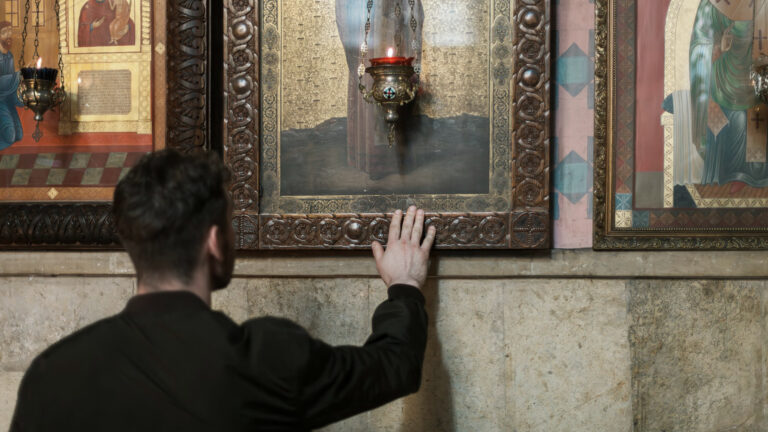 God’s Not Dead is about to have a sequel. God’s Not Dead 2 is currently in production and is slated for a 2016 release. Most likely, it will carry forward the basic plot line of its predecessor: a Christian who is bullied in an environment hostile to faith stands up for Christian conviction and makes a case for Christianity.
God’s Not Dead is about to have a sequel. God’s Not Dead 2 is currently in production and is slated for a 2016 release. Most likely, it will carry forward the basic plot line of its predecessor: a Christian who is bullied in an environment hostile to faith stands up for Christian conviction and makes a case for Christianity.
Why God’s Not Dead Resonated
God’s Not Dead resonated with many evangelical moviegoers for a number of reasons:
- The setting was a university campus, the place where many a young evangelical has encountered intellectual challenges to faith.
- The antagonist was an aggressive, atheistic professor determined to belittle anyone who harbored a trace of religious belief.
- The hero was a young believer who turned the tables on his professor and won over his class with his argumentation for God’s existence.
Throw in some popular apologetic tactics, a conversion at the moment of death, and a concert with the Newsboys, and you have a story in which the Christian subculture confronts and overcomes the hostile forces of unbelief.
The Secular Situation and the Apologetics Solution
Many of the evangelicals who cheered at the end of God’s Not Dead (and texted all their friends to let them know!) rightly sense the inherent worldview conflict between secularism and Christianity. They feel the pressure of living in a world in which belief in God is no longer unquestioned, but is often challenged by naturalistic and evolutionary assumptions. They recognize the difference between divine revelation and human reason, but also the importance of human reason in making a case for believing divine revelation. And they see the university as the battleground for worldview conflict.
The situation? Christian students regularly encounter intellectual challenges to their faith in college.
The solution? Prepare Christian young people to give good reasons for their faith.
A Deeper Diagnosis
I agree with both the symptom and the prescription here, but because this diagnosis doesn’t go deep enough, God’s Not Dead gives us a cartoonish villain who is out to destroy Christian faith and a hero who can sway an entire class by force of logic.
Let me be clear. Christian students do confront arguments opposed to Christianity when they are in college. Some professors are hostile to Christian belief and practice, especially Christianity’s distinctive ethical teachings. Many of these students are hearing these arguments for the first time and are unequipped to respond in satisfying ways. Some walk away from the church; others conserve but compartmentalize their faith.
But to see the situation as a “battle of the minds” and the solution as “winning the argument” is to miss the deeper part of the diagnosis. The problem is not merely argumentation, but environment. The environment (created by unexamined presuppositions) is what makes the argumentation so persuasive.
Yes, some Christian students lose their faith because they are unable to respond intellectually to certain arguments from hostile professors. But most Christian students who waver in their faith do so, not because of argumentation against their beliefs, but because of the environment that makes their beliefs seem so “out there,” so “alien” to the university’s common life.
The Power of Community
Imagine that you are a student in a university where the majority of professors adhere to something similar to the Enlightenment’s myth of progress, the idea that we are on an evolutionary journey toward greater and greater heights of knowledge and technology (with science pushing us forward, and traditional religion holding us back). When a student walks into this academic environment and absorbs this vision of the past and future, it becomes more plausible than before. The perspective is assumed, not argued by the professors and students – and that is what makes it so powerful.
Seen in this light, it is not the aggressive atheistic professor of God’s Not Dead who is most likely to persuade young Christian college students. It is more likely to be the subtle, yet powerful presence of a community that lives, without question, according to another view of the world – another definition of “progress” and the past, a view that relegates religion to the private realm and leaves it impotent and irrelevant for public life.
What God’s Not Dead Missed
So, if God’s Not Dead only gets half the diagnosis right (the part about intellectual engagement) but misses just why those arguments are so persuasive (the environment in which the arguments are presupposed), what must be the solution?
Well, the answer lies, at least in part, in the very thing God’s Not Dead left out – the Church, the people of God who showcase the reality of the resurrection through our common life together. If college makes it plausible to believe “God is dead,” the Church should make it hard to believe anything other than “God is alive.”
The reason some kids abandon their faith is not because they go to college, but because they stop going to church. They immerse themselves in a culture with naturalistic assumptions, rituals, and beliefs. The church becomes something for the holidays.
The Church as Apologetic
Lesslie Newbigin spoke of the people of God as a community apologetic, submissive to the Scriptures while challenging the plausibility structures of Enlightenment thought. It is not that the Church replaces rational strategies and arguments for belief in God, but rather that the Church becomes the atmosphere, the teller of a better story, a story whose truth is shown in a way of life.
Christians today should make use of the various tools at their disposal in order to equip people to make a case for faith, but unlike God’s Not Dead, we must not leave out the world where God’s Good News comes alive—the people of God who corporately witness to a kingdom that has no end.
The best apologetic for a secular age is a people who are in this world but not of it, who counter the Enlightenment’s eschatology with the true story of a new world which began on a Sunday morning outside Jerusalem.

















